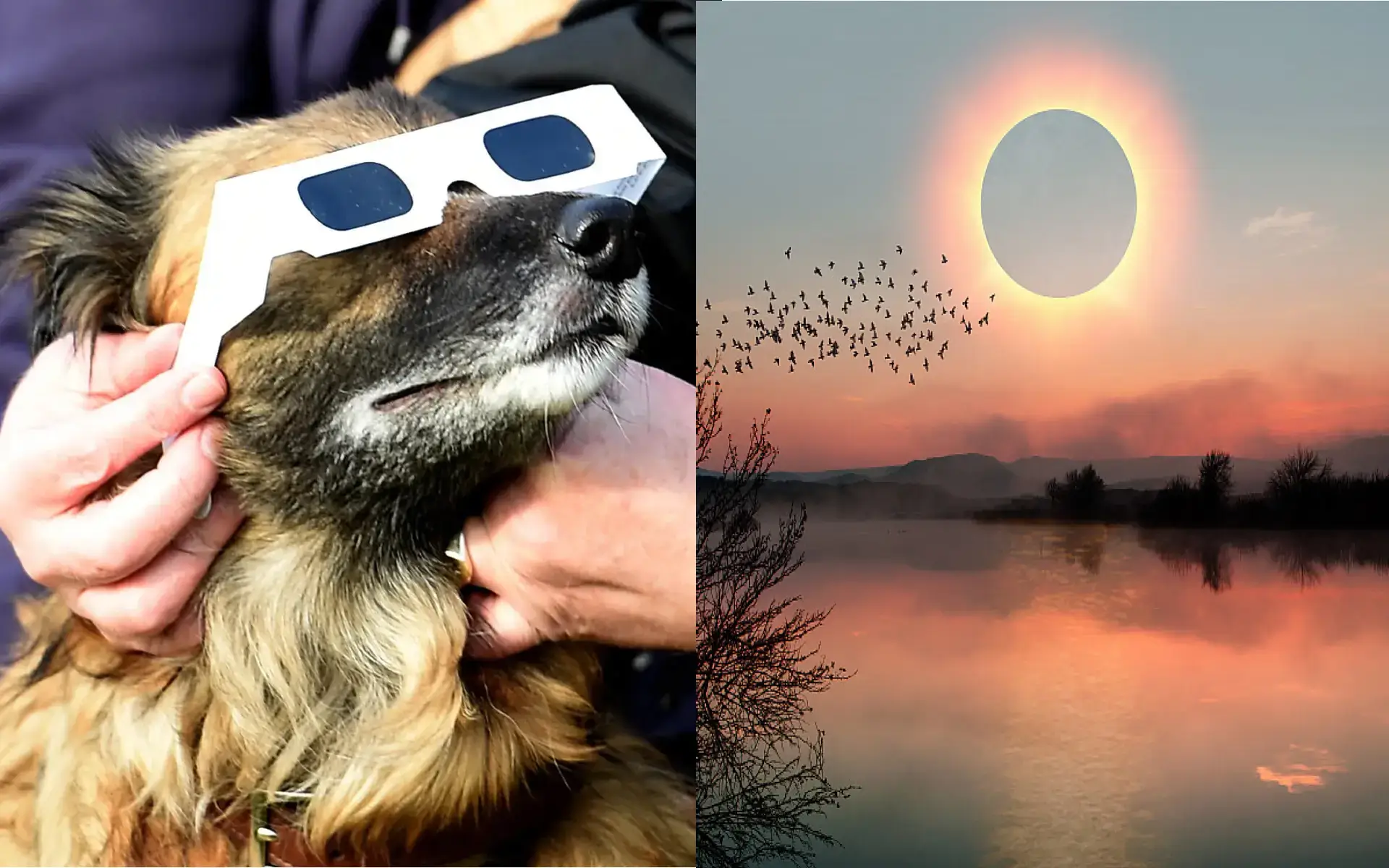The effects of a Solar Eclipse on Earth’s fauna have always been a subject of intrigue for scientists worldwide. With a sudden plunge into darkness, how do our planet’s creatures react? While some insight exists, the infrequent nature of such celestial events leaves much room for exploration and understanding.
In the past, during the “Great American Eclipse” of August 2017, zoologists and animal behaviorists had the chance to observe how 17 different species reacted to this phenomenon. Findings, published in the journal Animals, suggested that the sudden light shift created a conflict within animals, even domesticated ones, between their internal rhythm and the world around them.
The upcoming solar eclipse, set to take place on Monday, April 8, 2024, offers another opportunity for researchers to study animal behavior during such events. Zoos in various parts of the US, including Indiana, Arkansas, Ohio, and Texas, plan on monitoring the behavior of their residents during this rare celestial occurrence.
Based on previous observations, scientists anticipate a range of reactions among the animal kingdom. For instance, 25% of the zoo’s creatures, including the Komodo dragon, showed signs of anxiety with the immediate onset of night during the 2017 eclipse, while 75% began engaging in their nighttime routines.
Female gorillas were observed approaching the entrance to their indoor enclosure in their typical hierarchical order from the far side of their exhibit, a behavior repeated every evening prior to being secured inside for the night. Meanwhile, the typically-docile Galapagos tortoise went on a mating frenzy and then “gazed up at the sky” as the light started returning.
The upcoming solar eclipse will be visible from parts of New York and is expected to block the sun for over 180 million people in its path. The eclipse will start from Mexico’s Pacific Coast, crossing North America and reaching all the way to the coast of Newfoundland, Canada. New Yorkers will experience the solar eclipse just after 2 p.m. Monday.
A significant point to consider during a solar eclipse is the safety of the eyes. Viewing the event without proper eyewear like eclipse glasses or a handheld solar viewer during the partial eclipse phase before and after totality can lead to serious injury.
Pets might also exhibit unusual behavior during a solar eclipse. If a pet has a regular evening routine, they may begin to exhibit signs of it being bedtime. For pets with rare anxiety conditions, such as nighttime anxiety, giving situational anti-anxiety medication would be recommended. To keep pets safe, owners should keep them inside and provide them with fun activities while they observe the eclipse.
Interestingly, humans are observed to have the most significant response to solar eclipses. According to Nate Bickford, an animal researcher at Oregon Institute of Technology, humans display excitement, yelling, and screaming in a positive way during the eclipse, behavior that parallels certain primate reactions.
For the upcoming eclipse, many researchers will be stationed at the Houston Zoo, where they’re still seeking volunteers to help observe animals during the eclipse. NASA is also seeking volunteers living within the path of totality and on its edge to document the effects of the eclipse on all forms of life.




